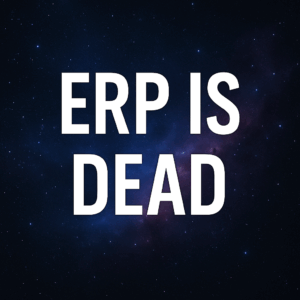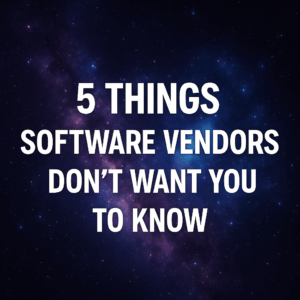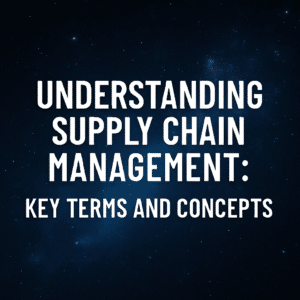ERP implementations and digital transformations are plagued with failure points perpetuated by ERP software industry hoaxes. Some of these are self-serving, while others are based on In this blog we’ll talk about five myths, and it’s my hope that’s there’s a couple that will be covered you haven’t thought of.
At Third Stage Consulting we’re always digging deeper into what makes ERP implementations successful and the possible pitfalls. We share this information freely because educating others about ERP is what we’re all about. While other consultancies may describe truly basic common myths such as“OCM isn’t always necessary” they’d be right, but you probably already know that.

Here are five not-so-commonly shared myths:
Table of Contents
ToggleYou can choose the right ERP software without or before having a comprehensive company strategy
An increasingly important service we provide as ERP experts is helping companies flesh out what their current and future strategies look like, beginning with executive alignment. Simply put, any talk of software or software functionality is premature if a strategy isn’t solidified. It’s like going on a boat without a destination in mind and no calculation of what provisions it will take to get there.
The bigger the company the harder it is to develop a cohesive digital strategy. You’ll have differences of opinion, perhaps multiple locations, competing goals, and sometimes investors pounding their fists for growth. It’s helpful to have an outside perspective and consulting referee to ensure that a detailed strategy is not only outlined but agreed upon. A strategy isn’t fluffy – it is filled with metrics, identifies risks, and above all assigns responsibility.
An example might prove this point. We were recently contracted by a company to help with software implementation. Long story short- the company had purchased software from a software reseller towards the end of 2019. Of course, the company was offered a generous discount to “buy now.” The company was told the software would meet all of their needs. Once we assisted the company in developing a comprehensive strategy, not only was the software not a good fit but the discount was not in line with our database of pricing for that software (it was no bargain).
Rip and replace is the way to go
A brand new “one system” vision may sound enticing. Imagine replacing your old and possibly disjointed systems with a sleeker option among the top ERP systems. For established companies, that concept means committing to spending a great deal of time and money. Even software giant SAP is rethinking its architecture – suggesting a trend towards more modular software options.
The reality is most companies are shying away from massive multimillion-dollar multiyear ERP initiatives in favor of targeted continuous tech and process improvements. Interest in advanced CRM and HCM software capabilities has skyrocketed at our consultancy, along with other best-of-breed ERP options. Once we start to examine a company’s systems, often there are reasons that a certain system or module exists, and replacing them (read customization) becomes a task not easily or affordably duplicated.
The Covid pandemic has prompted many companies to “do something” about technology often to survive or thrive (to handle increased demand). We are consistently able to help companies achieve technology advances without completely ripping out and replacing their current systems.

Your internal team should lead your ERP initiative
The facts:
- A company’s best internal employees are busy running the day-to-day business
- Asking employees to shepherd an ERP project and do their daily functions always ends badly
- Employees assigned exclusively to an ERP project have a 30% higher attrition rate (and typically leave before new technology is implemented, including management employees)
- Your executive team alignment will have a certain amount of dysfunctionality
You’ll want to consider strategically adding qualified independent external resources to keep everything tight and on point. Pay for the external experience and leadership which in the long run typically ends up being the smarter use of money. You do need internal resources involved such a steering committee, SMEs, executive sponsors, etc. You don’t want to delegate “everything” to external resources, so there’s a balance to be achieved when combining resources – one that points to success. Look to a qualified independent ERP consultant to give you some roadmap options.
Local resources are better resources
Covid has helped many companies get out of the mindset that local is better. Sure, we can all recognize the advantages of face-to-face interaction, and at the same time we realize the world has changed.
Technology is a challenge best left to the fittest. What is meant by this is that you want the most qualified team working on your initiative.
Let’s say NetSuite software has been approved (through a careful process) to be implemented in your company. However, NetSuite is not the easiest software to implement – true statement. You’ll want experienced SI resources that understand how to do NetSuite integrations as well as customizations. Highly proficient NetSuite SIs are in high demand and can charge a higher rate because they know how to work with the software and understand the intricacies of how it’s built.
So, it’s possible to choose the right software but the wrong system integrator. You don’t want to end up with the “B” or “C” team when you really need the “A” team. Bottom line: don’t choose your ERP consultant or system integrator based on geographic preferences or unproven alliances.
At Third Stage Consulting we are reminded of this important lesson as we sign contracts to assist companies in various countries around the globe. We are hired based on experience and results and not necessarily where our major offices are located.
You’ve communicated to your stakeholders adequately and honestly
There’s nothing like a good business process mapping session with employees to bring out the fears and frustrations of your company’s populace. As consultants, we sometimes feel like therapists when employees choose to “unload” when given the chance to talk about duties and processes.
It’s not uncommon for workers to feel overwhelmed (either positively or negatively) when their opinions have not been solicited for a long time. ERP initiatives don’t happen all that often – sometimes decades between major system changes – so it’s somewhat of an uncomfortable unknown for most involved.
As consultants, we survey workers on how well-informed they feel about the technology initiative going on within their company. Even with executive rah-rah speeches and company email updates > 50% of employees will anonymously report when surveyed that they either feel “somewhat uninformed” or “uninformed” – and this stat is almost always a surprise to management.
The lesson from this myth is that you can’t over-communicate and one organizational change management strategy does not fit all. Ask us about some of the creative communication and positive tactics we’ve tailored and helped companies deploy to ensure they retain workers and get positive buy-in when new technology is launched.
While we’re talking about communication, publicly traded companies should take note that shareholders are also keenly watching ERP initiatives for any negative or positive impact to earnings. In 2019 Home Depot had to do some explaining regarding their internal issues around technology, costs and missed opportunities. It has been reported that > 45% of Home Depot sales come from contractors and related professional businesses, but it’s B2B website lacked the functionality to fully take advantage of this huge buying segment.
It is not a fun thing for “hundred-dollar depot’s” CEO, Craig Menear to have to explain during one of the company’s earnings calls. The comment about technology snafus by Menear went something like this, “The process has proven to be more complex than originally anticipated.” Yes indeed – complex and expensive in more ways than one.
Maybe your communication plan resides as part of you OCM initiative, but another lesson is it better be crisp, expansive, on target, and managed professionally.
In Conclusion:
Whether it’s a question about a myth or a different question you might be pondering, we’d love to have that conversation. We’re a phone call away. Please feel free to contact us if you would like to use us as a sounding board as you continue your digital transformation journey!





